JustLeadershipUSA & CCF: Building Movement Power Across the Nation
College & Community Fellowship (CCF) believes that no one player is equipped to make systemic change on its own, and that’s why collaboration is an important element of our work. One of our most effective partnerships is with JustLeadershipUSA (JLUSA), whose mission is to cut the US correctional population in #halfby2030. CCF’s Executive Director Vivian Nixon has been the board chair of JLUSA since its founding, and our organizations work together on several campaigns. For this story, JLUSA’s President, DeAnna Hoskins, and CCF’s Director of Policy & Advocacy, Stephanie Bazell, weigh in on our shared history and vision for the future.
What is your professional background, and how did you get involved in criminal justice-related work?
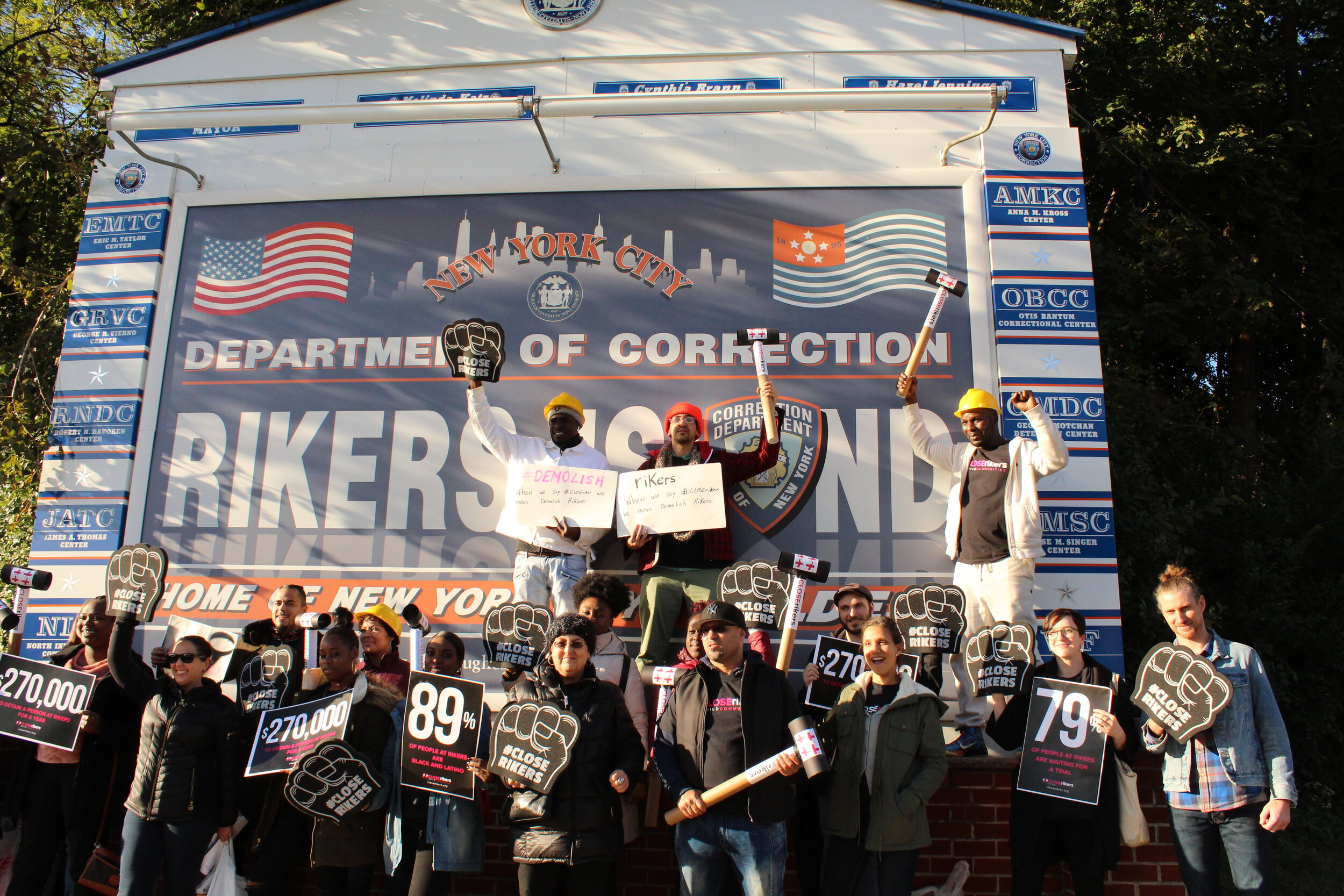
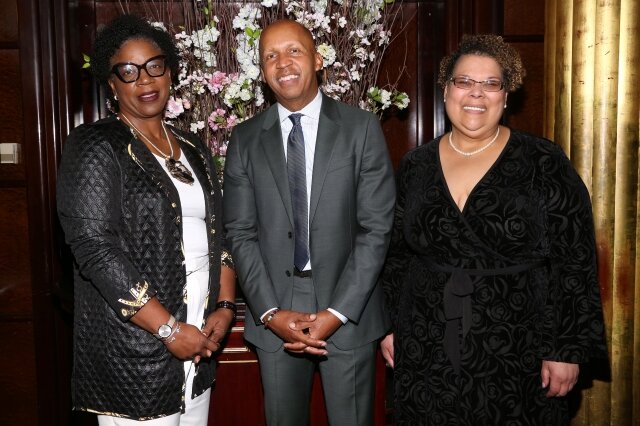
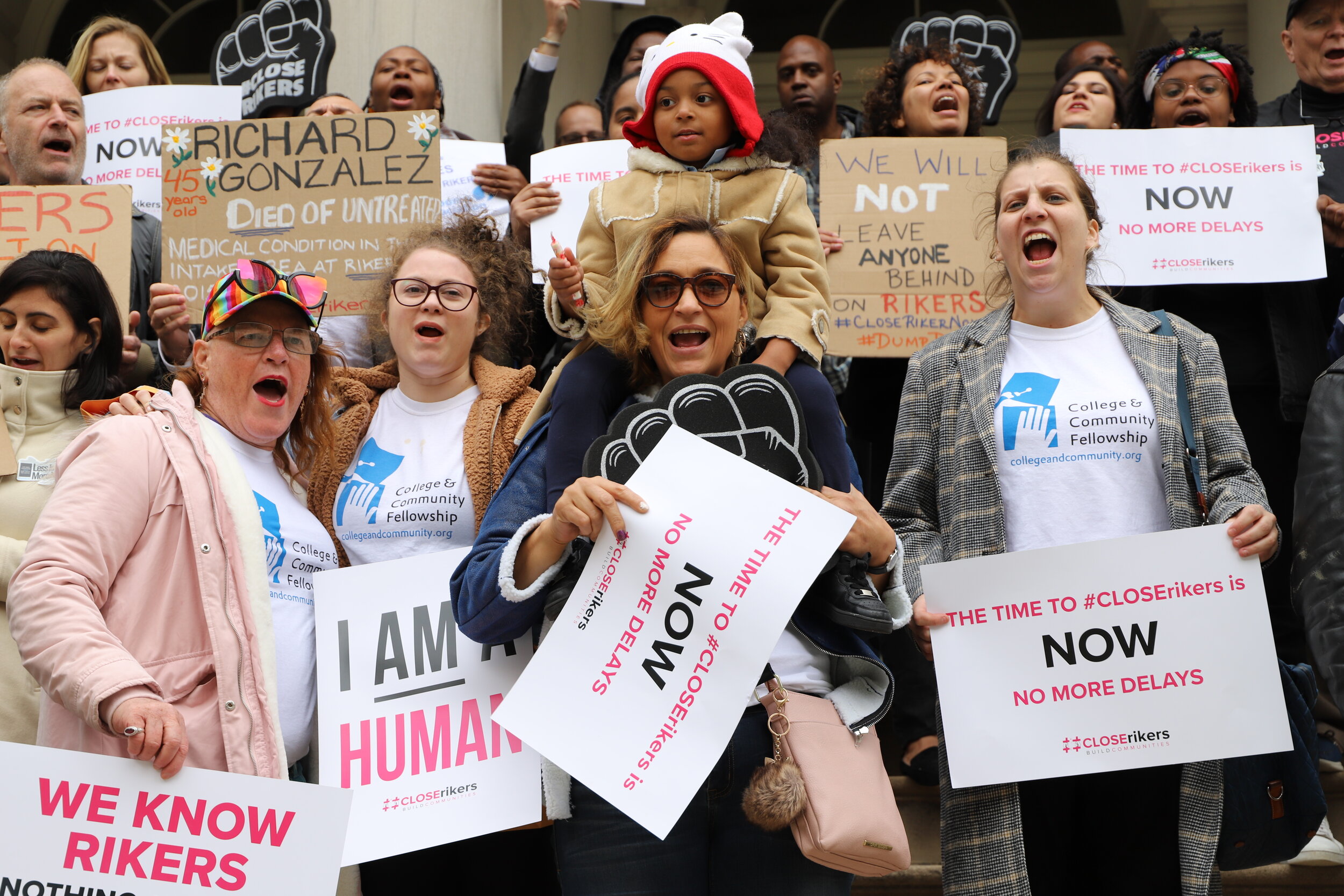
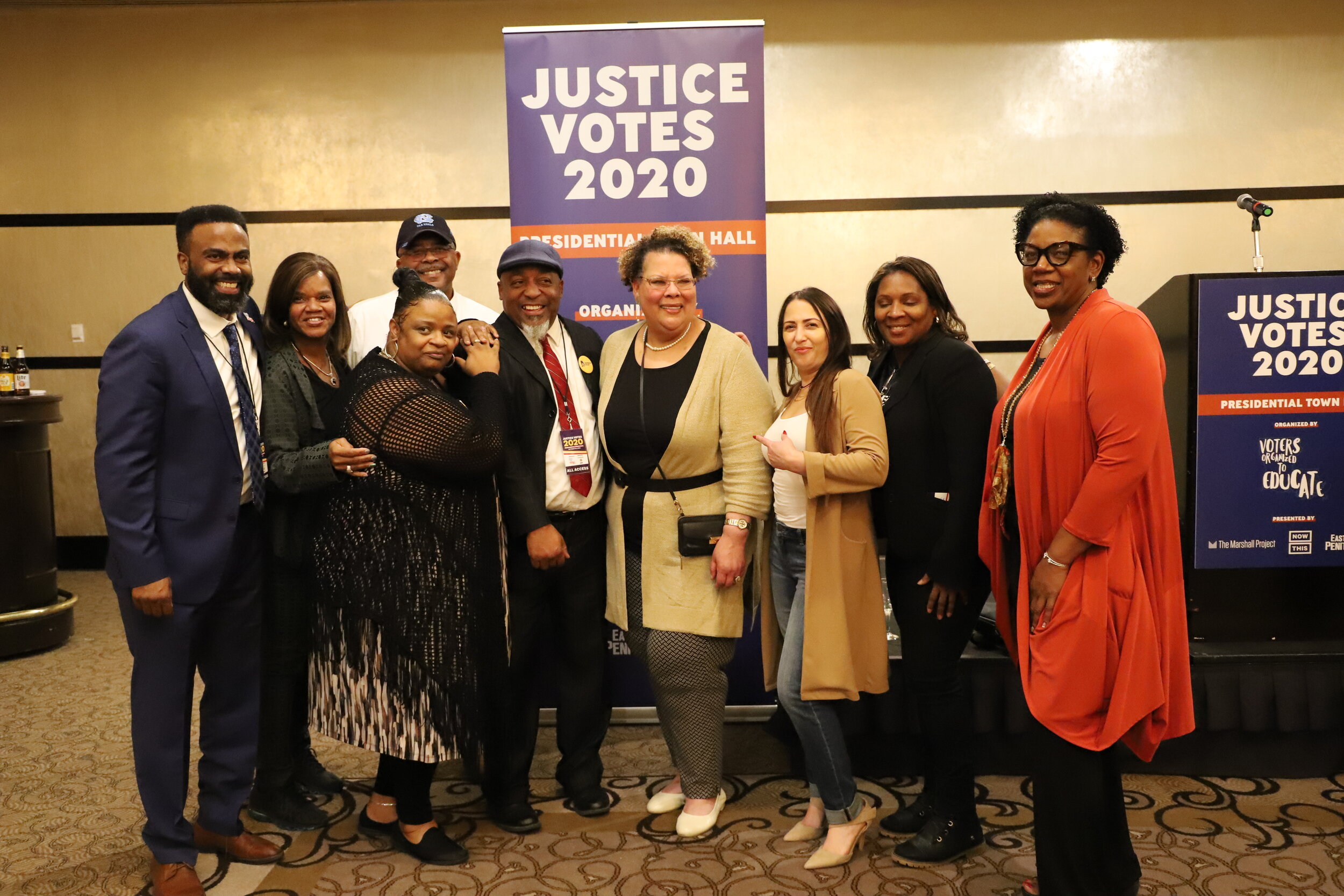
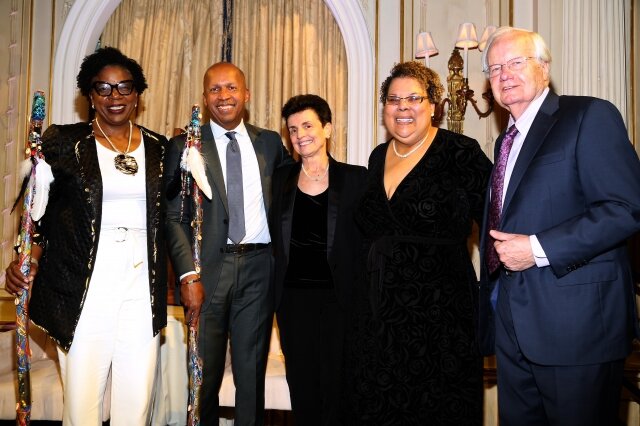
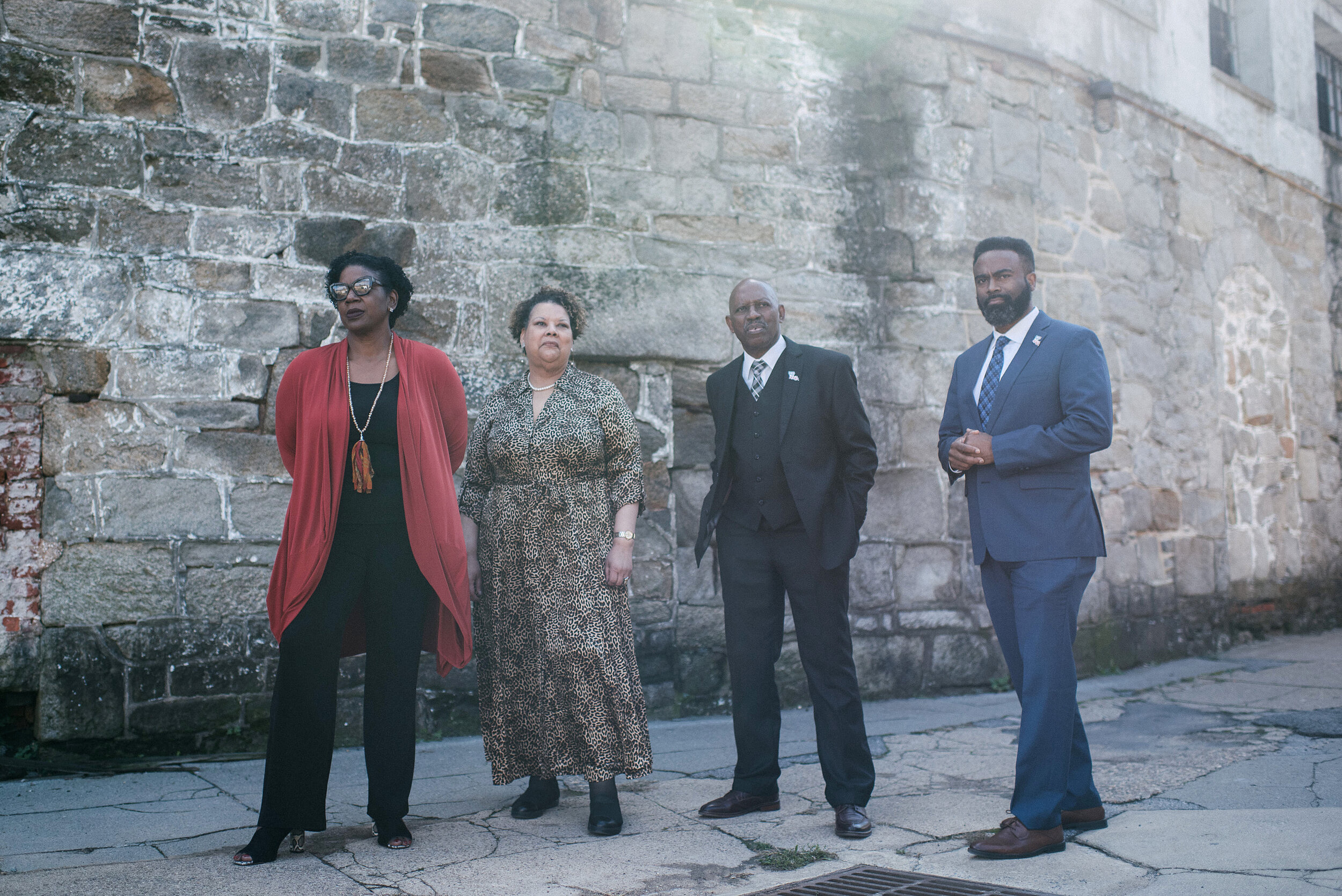
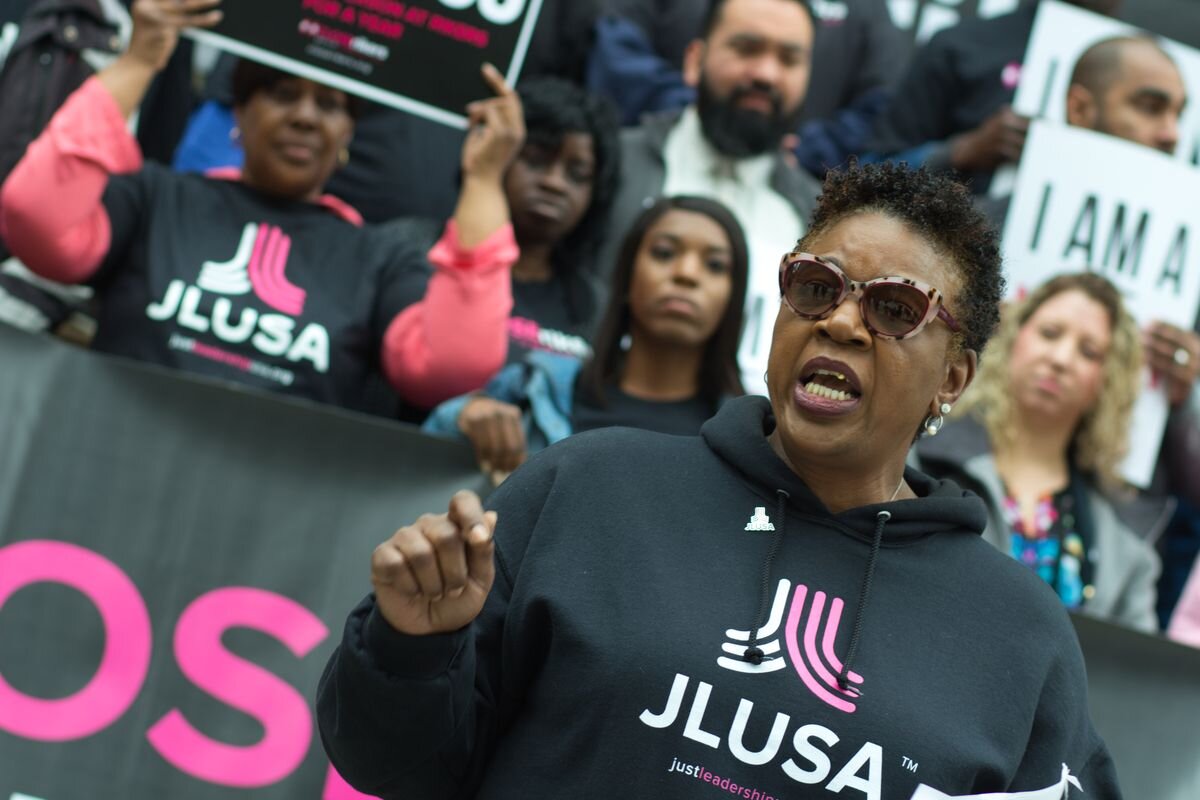
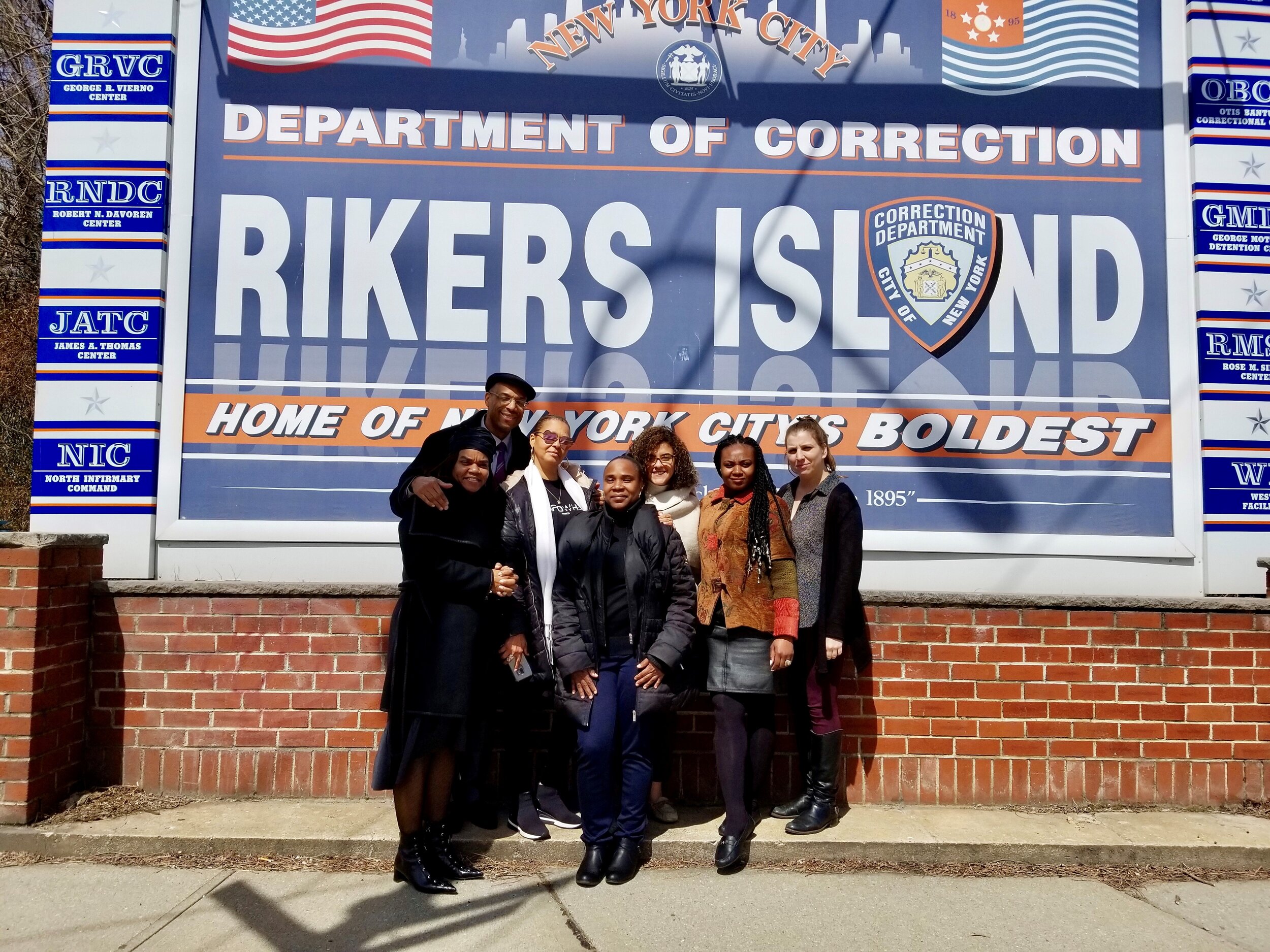
DeAnna Hoskins: My incarceration ended in 1999. As I tried to reintegrate and find work, I kept making it to the interview, but when the background checks came back, I wouldn’t be hired. Whenever an HR professional would say, ‘We can’t hire you,’ I’d ask for a copy of the policy and most of the time they couldn’t provide it. I found that these were unwritten rules within the industry. Eventually, I became a case manager in the substance abuse world, helping people navigate these unwritten policies. It became my life purpose to help undercut the system that was stacked against us. I got my Bachelor’s degree in social work, and then a Master’s in criminal justice. I went on to work with some of the top criminologists who were developing risk assessments and began understanding how racial biases play out. This propelled my career to working at the Indiana Department of Corrections, then the Governor’s office, then back to Ohio to establish an Office of Reentry. From there, I was recruited to the Obama administration as a senior policy advisor, which is where I met Vivian Nixon when she was a member of the Federal Interagency Reentry Council. And then, when that ended, I had the opportunity to come to JustLeadershipUSA.
Stephanie Bazell: I started out as a lawyer and always knew I wanted to go into criminal justice, but my career began in politics. I worked for the assistant counselor to the Governor in Public Safety and Public Integrity, and then chief of staff and policy director for a state representative. I loved being able to ask progressive questions when helping new electeds practice for their confirmation hearings - I got to do this with state police and homeland security representatives, but I was the only one in the room asking those questions. I was the only one who wasn’t a former prosecutor or member of law enforcement. At every opportunity, they told me I could get more involved with criminal justice, but it wasn’t exactly the work I wanted to be doing. I came to CCF so that I could finally fulfill what I had long wanted to do as a career.
When you first took on your current role, what was the relationship between CCF and JustLeadershipUSA?
DeAnna Hoskins: When I first joined, JLUSA was working with women from CCF who participated in the WISH advocacy training program, and who were part of the #CLOSErikers campaign. The partnership was really very important in bringing the perspective of women to the campaign, particularly regarding family separation and all of the trauma that happened on Rikers for women within the Rose M. Singer Center.
Stephanie Bazell: When I joined the CCF team, I understood JLUSA to be a sister organization with similar theories in terms of grounding their work in the empowerment of directly impacted people. Before I came on board, there had been a long history of support for JLUSA campaigns. By the time I joined, we were linking women in the WISH program with the #CLOSErikers campaign to help increase the leadership of women in that area.
How has the relationship between CCF and JLUSA changed over time? What are we currently working on together?
DeAnna Hoskins: We have continued to partner with CCF to amplify the voices of women, because our goal is to elevate the voices of directly impacted people. Having CCF and other organizations at the table is very important to us around collaboration. Currently, we are working on the #JustUs campaign, with CCF providing some support. We’re also being inclusive of CCF staff and getting ready to work with CCF women to provide them with the information to actually work on the campaign here in New York.
Stephanie Bazell: We’re working much more closely together now. As of late, CCF had to recalibrate a bit and examine what our role was in the field, given that COVID-19 is such an emergency and such a catastrophe behind bars. We want our education campaigns to stay viable and continue to get co-sponsors on the REAL Act, but we want to make sure we’re not taking away from what is really one of the biggest disasters of all time within American history. So DeAnna, with some background in emergency management, had the idea for the #JustUs campaign. Now CCF is working with JLUSA on that campaign, helping to create the policies, facilitating some of the webinars with the fellows from the Leading with Conviction program, helping advocates build campaigns in their states.
I was super intimidated at first to work with DeAnna. But I’ve found we both get super excited about Policy. She’s so creative in her approach it’s very exciting to execute her vision. We often share a type of nerdy joy that only true policy wonks can. COVID has made everything more friendly and casual. We speak to each other from our homes. DeAnna texts in emojis. She’s the opposite of what I expected - down-to-earth, hilarious and fun to be around. For me it’s really meaningful (having worked for men most of my life) to have this second incredible woman I can look up to. Both Vivian and DeAnna are people who kick down the door for other women. Not all female bosses do that, and I’m lucky to be a part of it.
What values do CCF and JLUSA share? What do those values mean in action?
DeAnna Hoskins: Our core missions, while they sound different, actually get to the same goal of empowering the most marginalized individuals so that they can be self-sufficient and move forward. CCF focuses mainly on education, and JustLeadershipUSA training provides the tools and resources necessary for each person to be able to become their greatest self. In action, that looks like a network of individuals who have the same past experiences that you have, and some of the same goals. Our people can realize that their voices are no longer silent, that they have an avenue to actually have their voices elevated and heard, that they are important, and they can make a difference.
Stephanie Bazell: The absolute foremost value we share is that formerly incarcerated people need to be leading the conversation. DeAnna is often quoted as saying, “If you’re not at the table, bring a folding chair.” But now I hear her saying, “We’re not bringing a folding chair, we’re starting our own damn table!” So we both feel very strongly about that. And when it comes to specific policy initiatives, we both are open to inviting in experts from the field who may not be directly impacted - for example, listening to epidemiologists during COVID-19. We both believe that’s the right thing to do, to be really collaborative, as long as directly impacted people are leading the charge.
What is your vision for the future of the partnership between CCF and JLUSA? For the future of the criminal justice reform field?
Stephanie Bazell: I think it's very nice because we have such different focuses that we're able to complement each other very well. We have staff that's independently very close to each other, and we've been with them through a lot of their major victories and are excited now that we're building our own campaigns for them to come on board and mobilize differently. So that's really exciting. And because JLUSA has so many national ties, that's critical for us because we do this Pell work and we need to have people join from different places. So the future of the partnership is about drawing on our complementary skills and networks.
DeAnna Hoskins: My vision is to really work more with CCF here in New York. I also think that we can learn lessons from CCF - they have been around much longer, and we can share their expertise with our leaders around the country. We want to look at the WISH training and how it’s set up to help some of our leaders empower their communities around the issues impacting them. And looking at the THRIVE Technical Assistance Program - I wish something like this were available when I started this journey because there was never anything there to talk to employers about the barriers for people with criminal backgrounds.
Stephanie Bazell: I think we're at a point where there's no longer going to be an acceptance for incremental change, and that requires us to do some reimagining on our end. And as much as we don't want incremental change, as much as we need bold action, we then need to create an environment that can be operationalized that speaks to our values.
It's not enough to say that all these people should be free, and it's not enough to say that our criminal justice system is broken. I think a lot of the reasons why there's difficulty in reimagining the system is because there's such a significant lack of transparency in the field, and fighting rigorously tooth and nail for information. We want to be able to pick up the pieces to rebuild something that's reflective of human dignity. And we need ALL the people in the field, people who are very strong abolitionists, people who are thinking of ways to reform from inside the system, everyone. No matter what, we need to move together because we’re significantly stronger that way. There is room for all of those differences of opinion. We want to ensure that as long as there are prisons, which will be a political reality for some time, that we create an environment reflective of human dignity. And that’s why we will continue to fight for Pell restoration - it’s about education as a means of liberation, and as a tool for people to collectively rise up and drive down the carceral system until there’s nothing left.
***Special Note: The #JustUs campaign, led by JLUSA and supported by CCF, will be offering a panel at the 2020 Democratic National Convention. "Rebuilding the Table” is a panel for directly impacted leaders to offer their support, community needs, ideas, and partnership to the Democrats, Biden campaign, and Biden-Sanders Unity Task Force on criminal justice reform. Registration is required.***
